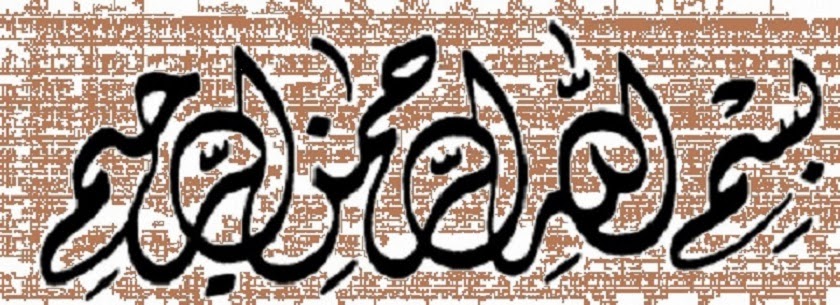33 – It is through increasing in sending the Peace and Blessings of Allaah upon the Prophet that one gains in their love for him. Loving the Prophet is a pillar of Emaan that which Emaan cannot be completed without it.
The more the Muslim focuses his heart in this supplication and the more he increases in it, the greater attachment he will have for the one who he is supplicating for. His love for the Prophet intensifies and multiplies. He develops a yearning to be like him and to meet him. His heart is then penetrated with love for him. The greater the impact the Prophet has on one’s life, the more complete the heart becomes. The lesser the impact, the weaker the heart gets.
The zeal the believer has in wanting to see the Prophet is immense, so the with the greater the yearning, the more the believer will follow his teachings, and the more he follows his teachings the greater the praise and remembrance of the Prophet will be on his tongue. All of this depends on the reverence one has for the Prophet in his heart – the greater the love, then the greater the actions and praise on his tongue, the weaker the love then the lesser the actions and praise. This point is quite obvious and this is why the poet said:
I am surprised by those who claim that they remember their loved ones
Does the one who loves another ever forget them?
Meaning, it is surprising that one claims to love another yet needs reminding to follow and remember them.
In fact the more someone loves something the more they would want to follow them. Whoever claims to love but contradicts their example then they are actually stating that they refuse to follow them. And as the saying goes, “Whoever loves something, then they will be constantly talking about that thing.”
So with these examples, we can apply them to what requires out utmost love.
As the poet said:
If you were to split my heart open you would find
That my love for Tawheed of Allaah would be at separate to the love of the creation
This is the heart of the believer: Tawheed in Allaah and the mentioning of the Messenger are engraved in the heart of the believer, nothing can cause them to erode.
The more you talk about something, the more you will gain love of it. Forgetting the thing you claim you love will inevitably lead to one losing their love for it or at least causing weakness in it.
Allaah, the Glorified and the Exalted, is the One who deserves this love and remembrance the most, and the most deserved of complete reverence within the heart of the slave.
Rather, the kind of Shirk that can never be forgiven is the type of Shirk in which a person shares their love of Allaah to the creation, and shares their reverence to Him with the creation.
Allaah, the Most High, Says:
“And of mankind are some who take (for worship) others besides Allah as rivals (to Allah). They love them as they love Allah. But those who believe, love Allah more (than anything else). ” [al-Baqarah 2:165]
Here, Allaah, the Glorified and the Exalted, Informs us that the Mushirk (the one who does Shirk) competes their love of Allaah with their love for the creation. However, the believer is the one who is exceeds in his love for Allaah.
The people of the fire will say:
“By Allah, we were truly in a manifest error. When We held you (false gods) as equals (in worship) with the Lord of the 'Alamin (mankind, jinns and all that exists)” [ash-Shura’aa 26:97-98]
In this Aayah, the people of the fire are regretful because they created equals to Allaah in their love for their false gods, and this is something well-known, because no person who practices Shirk can ever claim that their idols or deities are exactly the same as the Lord of the Creation in relation to His Names, Attributes, Actions, His Power in Creating, Maintaining the Heavens and the Earth and in the of man. Rather this Aayah indicates that they will be casted into the fire because of creating equals to Allaah in their love.
Even more misguided than them are those equal the whole of creation to Allaah, claiming that Allaah is omnipresent in everything (like the belief of the Jahmees, some Matrudis and the extreme Soofees). They make his presence within the creation as an attribute of completeness, whilst at the same time as a deficiency for Him (by mixing Him within the creation).
So if Allaah has chastised those who equate partners to Him in love alone via their idols, then how severe is the sin for those who believe that Allaah and the creation are intertwined into one existence (like the Soofee belief that their scholars reach when attaining a certain degree of piety)?
The point is that the more one remembers or makes Dhikr of something then this is a cause for one to increase in their love for the thing they constantly remember. Allaah, the Most High, is the One Who is most deserved of this – our love, reverence and our worship to Him. So remembering Him aplenty will be extremely beneficial for the slave. His enemy (Iblees) is hunting for this connection to be removed. For this reason, Allaah, the Most High, has Ordered His Slaves to Remember Him much and reciting the Quraan, as these are sources of their success. Allaah, the Most High, Says:
“And remember Allah much, that you may be successful” [al-Jumu’ah 62:10]
And Allaah, the Most High, Says:
“O you who believe! Remember Allah with much remembrance.” [Al-Ahzaab 33:41]
And Allaah, the Most High, Says:
“And the men and the women who remember Allah much with their hearts and tongues” [al-Ahzaab 33:35]
And Allaah, the Most High, Says:
“O you who believe! Let not your properties or your children divert you from the remembrance of Allah. And whosoever does that, then they are the losers.” [Al-Munaafiqoon 63:9]
And Allaah, the Most High, Says:
“Therefore remember Me (by praying, glorifying, etc.). I will remember you, and be grateful to Me (for My countless Favours on you) and never be ungrateful to Me.” [al-Baqarah 2:152]
The Prophet [Peace and Blessings of Allaah be upon him] said, “The Mufaridoon have proceeded.” They asked, “Who are the Mufaridoon?” He replied, “Those who remember Allaah much.” [Reported by Muslim (2676)]
It is also reported that Mu’aadh bin Jabal [may Allaah be Pleased with him] said, “There is no action that the Son of Aadam that can be more of a saviour for him from the fire than the remembrance of Allaah.” [Reported by at-Tirmidhee (1/95), Ibn Abee Shaybah (10/300) and at-Tabaraanee (352)]
Remembering the Prophet [Peace and Blessings of Allaah be upon him] is a consequence of remembering Allaah much.
The point is to reinforce the fact that the more one remembers something the more love they have for them. Remembering or Dhikr in one’s heart is like water the ground that reaps harvest. Even stronger, it is like the water that the fish needs to survive.
Remembering of Allaah is of types:
-Learning and remembering His Names, Attributes and Actions and Praising Him for them.
-Glorifying Him (saying Subhaanallah), Praising Him (saying Alhumdulilah), Extoling His Greatness (saying Allaahu Akbar), proclaiming His Oneness (saying La ilaha ila Allaah) and this is what is commonly known as Dhikr today.
-Dhikr or remembrance of Allaah in His Rulings, His Commands and His Prohibitions and this form of Dhikr is only for the learned. Rather, the learned are the only ones of the Ummah which engage in all three types of Dhikr mentioned above.
From the greatest forms of Dhikr is the remember Allaah with His Own Words – the Quraan.
Allaah, the Most High, Says:
“"But whosoever turns away from My Reminder (i.e. neither believes in this Qur'an nor acts on its orders, etc.) verily, for him is a life of hardship, and We shall raise him up blind on the Day of Resurrection."” [Taa-Haa 20:124]
This Aayah refers to the Quraan that was revealed to His Messenger.
And He, the Most High, also Said:
“Those who believe (in the Oneness of Allah - Islamic Monotheism), and whose hearts find rest in the remembrance of Allah, Verily, in the remembrance of Allah do hearts find rest.” [ar-Ra’d 13:28]
This Aayah refers supplication, seeking forgiveness and humility to Him.
So this summarises the five types of Dhikr.
[Jalaa’ al-Afhaam Fee Fadl as-Salaat wa as-Salaam ‘ala Muhammad Khayr al-Anaam (Pg. 515 - 527)]

